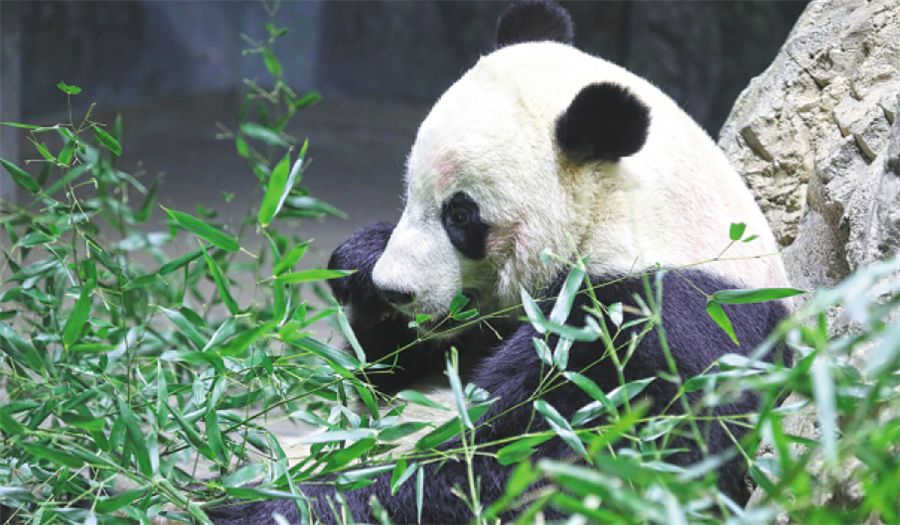Panda poised for new life in Sichuan






In 1996, the center started loaning pandas to other countries and regions, where they have given birth to 19 cubs. Fifteen of the cubs, excluding Bei Bei, have been sent to the center. Under the agreement for global giant panda preservation, pandas born overseas belong to China and should be returned to the country when they turn 2 years old.
Zhang Hemin, executive director of the center, said that in some cases, cubs are sent to China when they are older, at the request of the country in which they were born.
Many cubs born overseas initially stay at the Bifengxia branch before being transferred to others administered by the center.
The best-known cub to arrive at Bifengxia was Tai Shan, who was born at the Smithsonian's National Zoo in 2005.
The male, who is now 14, charmed millions of visitors during his four-and-a-half year stay in the US capital.
After Tai Shan arrived in China in February 2010, the center assigned a keeper with a good command of English to care for him. The panda's keeper in the US, Nicole Meese, had communicated with him in English since has was just 1 month old.
The center feared that Tai Shan would be unable to understand a Chinese keeper speaking in the Sichuan dialect.
But Su, Bei Bei's new keeper, said: "Pandas do not understand human languages at all, be it Chinese or English. They only recognize human voices."
In June, managers at the Bifengxia base told Su that she would be caring for Bei Bei. Since then, she has learned a lot about the cub.
"Pandas like sweet food. Bei Bei has been rewarded with sugarcane after cooperating in a physical checkup-for example, after he has placed one leg on equipment to enable blood to be drawn," Su said.
"Instead of sugarcane, we will feed Bei Bei with honey as a reward," she added.
Su plans to spend two weeks allowing Bei Bei to get to know her voice. She will also train the cub how to stand and sit.














